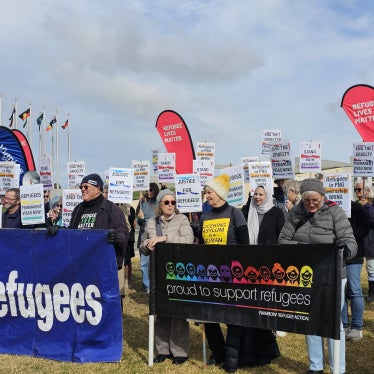Mr. President,
In light of the March 14 death in Beijing of Cao Shunli, an activist who had tried to participate in China’s Universal Periodic Review, Human Rights Watch expresses its grave concern about China’s deeply misleading comments regarding freedom of expression, participation in the UPR process, the rights of civil society and lawyers, and respect for the rights of ethnic minorities.
If, as China claims in its Outcome Report, “No one suffers reprisal for taking part in lawful activities or international mechanisms,” why was human rights activist Cao Shunli detained at the Beijing airport in September 2013 en route to Geneva, and her whereabouts unknown until she was formally charged in October with vague and unsubstantiated charge of "picking quarrels and provoking troubles"? The Council should be informed that Cao, after being denied access to adequate medical care for three months in a Beijing prison, was transferred in February 2014 to intensive care in a Beijing hospital, where she died last week.
If, as China claims in its Outcome Report, “…the Chinese government guarantees that all ethnic minorities fully exercise political…and other basic rights,” and that “citizens have the right to criticize and make suggestions to any state organ or official,” perhaps it can explain today the basis for its allegations of “separatism” against Uighur economist Ilham Tohti, who criticized Chinese government policies in Xinjiang but explicitly rejected independence for that region?
And if, as China claims in its Outcome Report, people in China have the right to peacefully speak their minds and gather together, and that, “There is no so-called issue of suppressing ‘human rights defenders’,” perhaps it can explain the basis of the imprisonment of lawyer Xu Zhiyong in January 2014 and other members of the New Citizens Movement over the course of 2013-2014?
Human Rights Watch notes the increase in the number of recommendations accepted by China, and welcomes the abolition of reeducation through labor.
However, many of the rejected recommendations speak to some of the most pressing human rights abuses inside the country today: use of the death penalty, maintenance of other systems of arbitrary detention, restrictions on the freedom of expression, and lack of full cooperation—by the government and for ordinary people—with international human rights mechanisms. We note that in abolishing reeducation through labor the Chinese government noted its unconstitutional nature, and hope that similar logic will be employed in dismantling the Custody and Education system as well as other illegal forms of arbitrary detention.
In addition, all three of the cases mentioned above have involved the use of unfair trials, arbitrary detention, suppression of peaceful expression, and denial of access to adequate medical treatment since China’s October 2013 review—yet in this venue China claims that these abuses simply do not exist.
Mr. President, such a response challenges not only the integrity of the UPR process and China’s participation therein, but also demonstrates that China does not "uphold the highest standards in the promotion and protection of human rights" (UN General Assembly resolution 60/251) nor does it “fully cooperate with the Council" (as set out in UN General Assembly resolution 60/251). In 2014—fully twenty-five years after the Tiananmen massacre--Human Rights Watch and many inside China had hoped for better.








